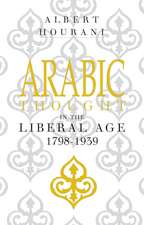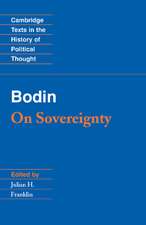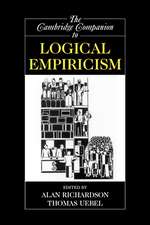Constant: Political Writings: Cambridge Texts in the History of Political Thought
Autor Benjamin Constant Biancamaria Fontanaen Limba Engleză Paperback – 9 noi 1988
Din seria Cambridge Texts in the History of Political Thought
-
 Preț: 199.23 lei
Preț: 199.23 lei -
 Preț: 288.33 lei
Preț: 288.33 lei -
 Preț: 147.20 lei
Preț: 147.20 lei -
 Preț: 192.75 lei
Preț: 192.75 lei -
 Preț: 123.27 lei
Preț: 123.27 lei -
 Preț: 226.68 lei
Preț: 226.68 lei -
 Preț: 161.78 lei
Preț: 161.78 lei -
 Preț: 116.10 lei
Preț: 116.10 lei -
 Preț: 231.29 lei
Preț: 231.29 lei -
 Preț: 128.84 lei
Preț: 128.84 lei -
 Preț: 199.23 lei
Preț: 199.23 lei -
 Preț: 144.69 lei
Preț: 144.69 lei -
 Preț: 198.93 lei
Preț: 198.93 lei -
 Preț: 178.11 lei
Preț: 178.11 lei -
 Preț: 156.88 lei
Preț: 156.88 lei -
 Preț: 122.45 lei
Preț: 122.45 lei -
 Preț: 124.33 lei
Preț: 124.33 lei -
 Preț: 132.55 lei
Preț: 132.55 lei -
 Preț: 119.68 lei
Preț: 119.68 lei -
 Preț: 130.10 lei
Preț: 130.10 lei -
 Preț: 207.72 lei
Preț: 207.72 lei -
 Preț: 295.98 lei
Preț: 295.98 lei -
 Preț: 193.53 lei
Preț: 193.53 lei -
 Preț: 339.90 lei
Preț: 339.90 lei - 8%
 Preț: 467.17 lei
Preț: 467.17 lei -
 Preț: 140.39 lei
Preț: 140.39 lei -
 Preț: 176.62 lei
Preț: 176.62 lei -
 Preț: 121.24 lei
Preț: 121.24 lei -
 Preț: 178.87 lei
Preț: 178.87 lei -
 Preț: 177.82 lei
Preț: 177.82 lei -
 Preț: 209.15 lei
Preț: 209.15 lei -
 Preț: 208.68 lei
Preț: 208.68 lei -
 Preț: 205.41 lei
Preț: 205.41 lei -
 Preț: 101.03 lei
Preț: 101.03 lei -
 Preț: 188.94 lei
Preț: 188.94 lei -
 Preț: 189.91 lei
Preț: 189.91 lei -
 Preț: 183.45 lei
Preț: 183.45 lei -
 Preț: 178.53 lei
Preț: 178.53 lei -
 Preț: 135.71 lei
Preț: 135.71 lei - 14%
 Preț: 694.86 lei
Preț: 694.86 lei - 14%
 Preț: 732.13 lei
Preț: 732.13 lei - 11%
 Preț: 686.44 lei
Preț: 686.44 lei - 14%
 Preț: 767.93 lei
Preț: 767.93 lei - 14%
 Preț: 681.68 lei
Preț: 681.68 lei
Preț: 330.80 lei
Nou
Puncte Express: 496
Preț estimativ în valută:
63.30€ • 66.27$ • 52.38£
63.30€ • 66.27$ • 52.38£
Carte tipărită la comandă
Livrare economică 07-21 aprilie
Preluare comenzi: 021 569.72.76
Specificații
ISBN-13: 9780521316323
ISBN-10: 0521316324
Pagini: 366
Ilustrații: black & white illustrations
Dimensiuni: 139 x 215 x 22 mm
Greutate: 0.43 kg
Editura: Cambridge University Press
Colecția Cambridge University Press
Seria Cambridge Texts in the History of Political Thought
Locul publicării:Cambridge, United Kingdom
ISBN-10: 0521316324
Pagini: 366
Ilustrații: black & white illustrations
Dimensiuni: 139 x 215 x 22 mm
Greutate: 0.43 kg
Editura: Cambridge University Press
Colecția Cambridge University Press
Seria Cambridge Texts in the History of Political Thought
Locul publicării:Cambridge, United Kingdom
Cuprins
Acknowledgements; Introduction; Bibliographical note; Preface to the first edition; Preface to the third edition; Foreword to the fourth edition; Part I. The Spirit of Conquest: 1. The virtues compatible with war at given stages of social development; 2. The character of modern nations in relation to war; 3. The spirit of conquest in the present condition of Europe; 4. Of a military race acting on self-interest alone; 5. A further reason for the deterioration of the military class within the system of conquest; 6. The influence of this military spirit upon the internal condition of nations; 7. A further drawback of the formation of this military spirit; 8. The effect of a conquering government upon the mass of the nation; 9. Means of coercion necessary to supplement upon the mass of the nation; 10. Further drawbacks of the system of warfare for enlightenment and the educated class; 11. The point of view from which a conquering nation today would regard its own successes; 12. Effect of these successes upon the conquered peoples; 13. On uniformity; 14. The inevitable end to the successes of a conquering nation; 15. Results of the system of warfare in the present age; Part II. Usurpation: 1. The specific aim of the comparison between usurpation and monarchy; 2. Differences between usurpation and monarchy; 3. One respect in which usurpation is more hateful than absolute despotism; 4. Usurpation cannot survive in this period of our civilisation; 5. Can usurpation not be maintained by force?; 6. The kind of liberty offered to men at the end of the last century; 7. The modern imitators of the republics of antiquity; 8. The means employed to give to the moderns the liberty of the ancients; 9. Does the aversion of the moderns for this pretended liberty imply that they love despotism?; 10. A sophism in favour of arbitrary power excercised by one man; 11. The effects of arbitrary power upon intellectual progress; 12. Religion under arbitrary power; 13. Men's inability to resign themselves voluntarily to arbitrary power in any form; 14. Despotism as a means of preserving usurpation; 15. The effect of illegal and despotism measures on regular governments themselves; 16. Implications of the preceding considerations in relation to despotism; 17. Causes which make despotism particularly impossible at this age of our civilisation; 18. As usurpation cannot be maintained through despotism, since in our days despotism itself cannot last, usurpation has no chance of enduring; Additions to The spirit of conquest and usurpation; Bibliographical note; Bibliography; Index.
Descriere
This 1988 book is an English translation of the major political works of Benjamin Constant.















